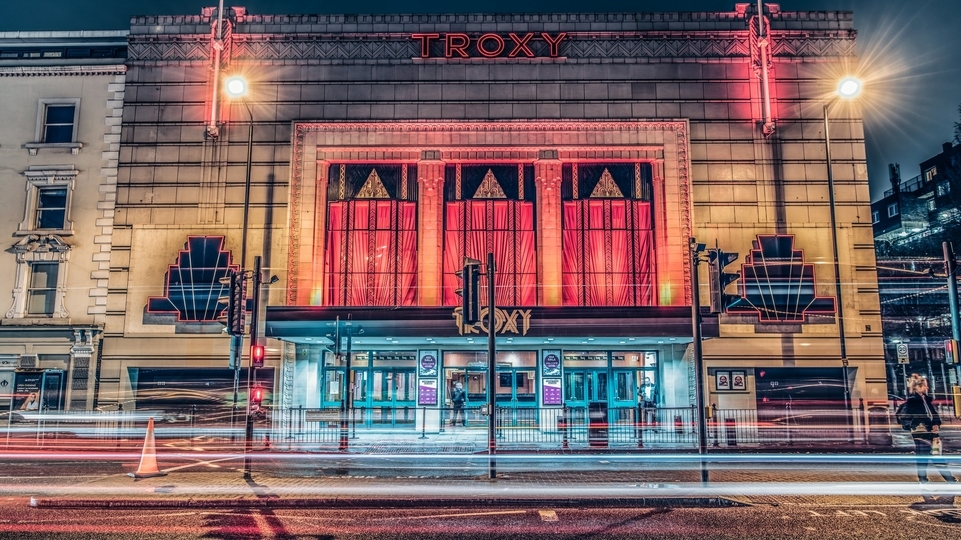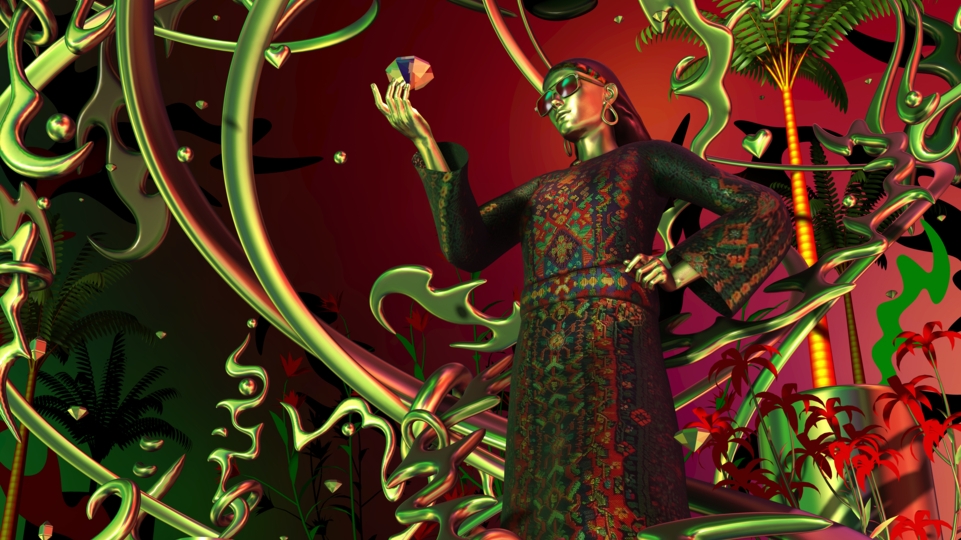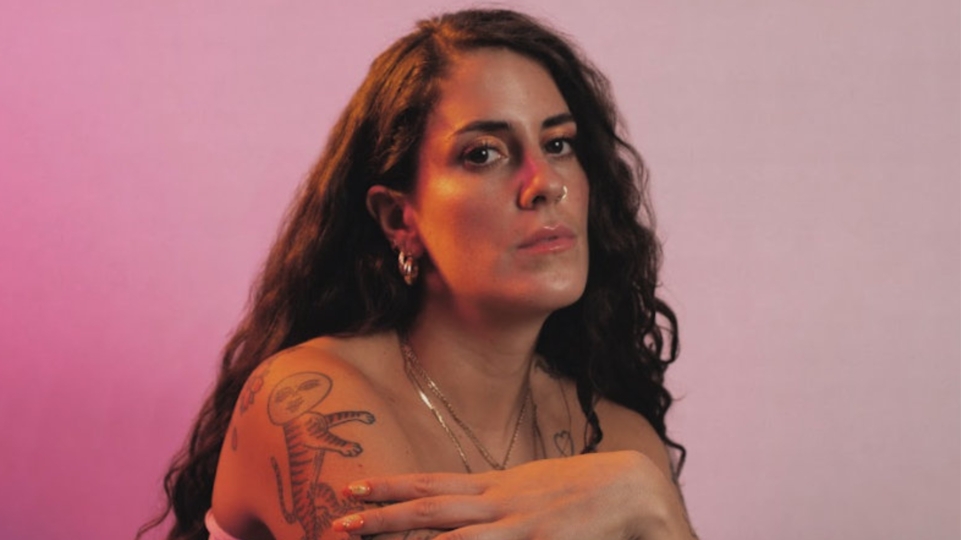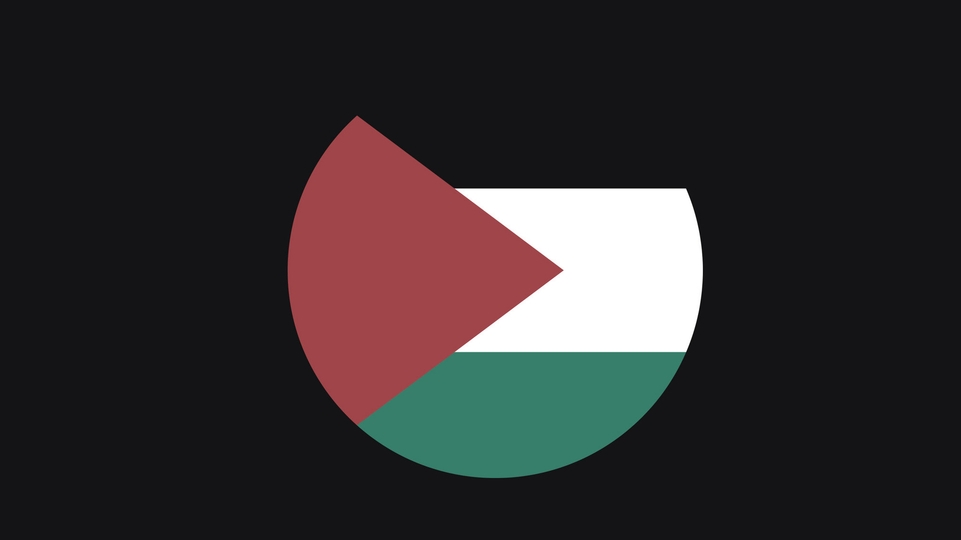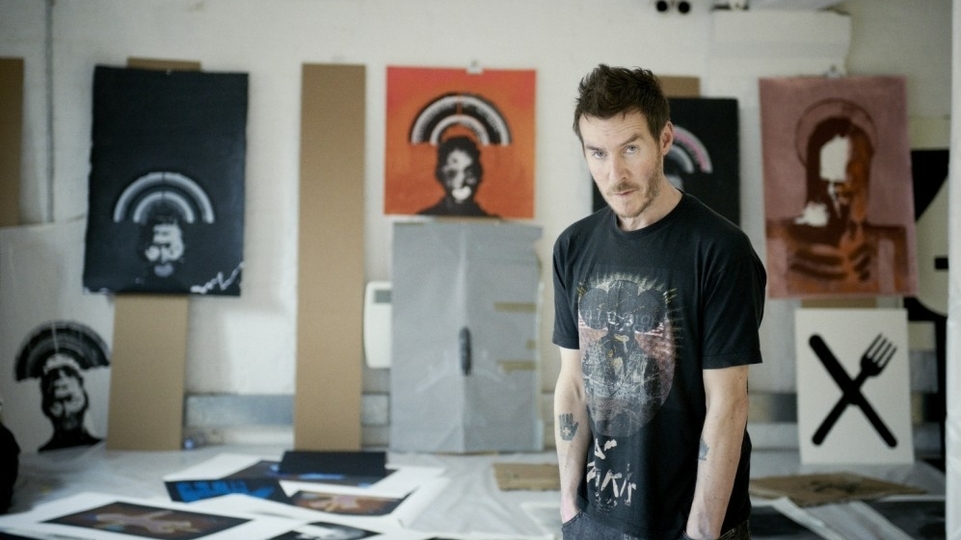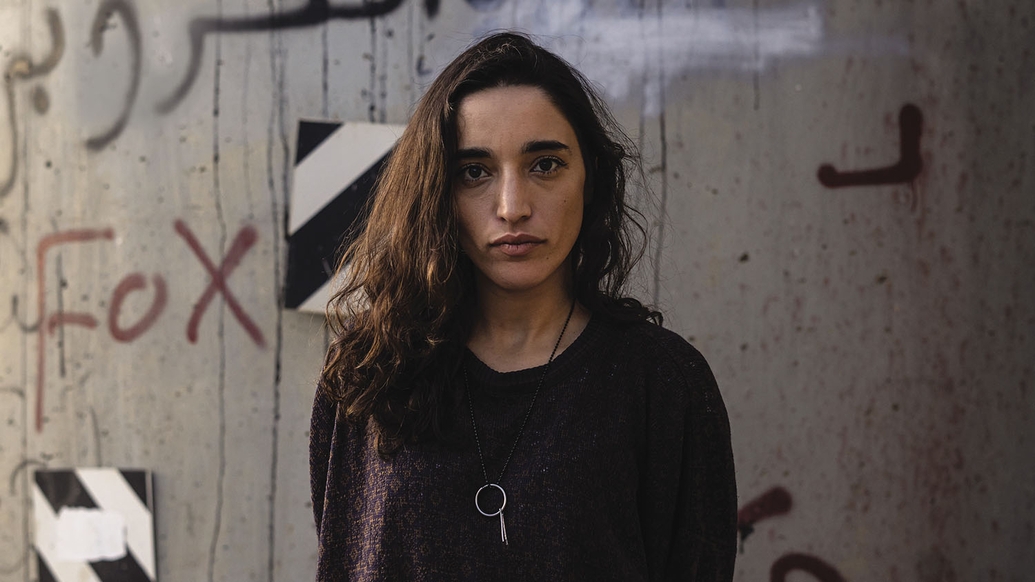
Sama' Abdulhadi: Palestine's techno champion
Known as the “queen of the Palestinian techno scene”, Sama' Abdulhadi was becoming internationally recognised as a powerful force in dance music until a gig in Palestine late last year went terribly wrong, threatening not only her career, but her safety and freedom. An artist as determined as she is talented, Sama' is fighting for her work to be heard, and for the world to connect with her and her fellow Palestinians. Sirin Kale discovers how Sama' was saved by techno, and how she’s rebuilding her life, and her scene, after a tumultuous time
When Sama' Abdulhadi was 13, the Israel Defense Forces came to her apartment block in Ramallah, the occupied West Bank, and took over the building. This was during the Second Intifada, the Palestinian uprising against Israel that ran from 2000 to 2005.
The army locked Sama' and her family on the roof. To make things seem normal, her parents pretended it was a game, although the pretence was hard to maintain when the IDF bombed their neighbour’s house to the ground. They had no food, no electricity, no toilet.
“Thank God it was winter,” says Sama', “because we collected rainwater in buckets, and boiled it.” After three days, the army let her family back in their apartment. It was trashed. There was no food in the fridge. Everything was vandalised.
“It’s these disturbing things that turn you into this really angry child that is mad at the occupation,” says Sama', “at the world, at Arabs, at everybody, at everything, you know; at yourself, at your parents and your people. You’re just angry all the time.” She pauses.
“And that’s when techno saved me,” she says, “because I was an angry person, it kind of disconnected me from reality and took me to this dome I didn’t exist in, this world... and it was like, ‘Wow, okay, I didn’t think of that’. It became this healthy ritual for me that, whenever I was angry, I just danced to techno, because it let it all out.”
We are speaking via Zoom, Sama' in Ramallah, ourselves in London. The connection is bad, but we muddle through. “We have the worst internet in the world here,” Sama' explains. She is sitting at a cafe table in a quiet square. Periodically, she stops to light a cigarette, or take a pull on a mint tea. In person, Sama' is relaxed, chatty and sincere. Talking with her feels like hanging out with our coolest friend.

“I just want to be a DJ, I never wanted to speak about politics... but I guess I also understand it: I’m the only one from Palestine. I’m the only person who can talk about it. So I might as well do it, because it’s needed.”
PALESTINIAN IDENTITY
Known as the “queen of the Palestinian techno scene”, Sama' came to international prominence after a barnstorming 2018 Boiler Room appearance that has, at the time of writing, amassed over 7.3 million views, making it one of the platform’s most-watched sets to date. It’s not hard to see why: Sama' beamed throughout her pounding techno set, while around her an audience of mostly family and friends whooped and cheered. Euphoria radiated from the crowd in waves. After the success of her Boiler Room set, the international bookings flooded in. “The weekend of the Boiler Room,” Sama' says, “I got 40 booking requests in one day. Before, I would get 20 requests a month, if I was lucky.”
Seemingly overnight, Sama' became an internationally acclaimed, in-demand DJ. But being the most prominent Palestinian DJ in the world means that, for Sama', geopolitics and her career are forever intertwined, no matter how much she wishes they weren’t.
“I just want to be a DJ,” laughs Sama'. “I never wanted to speak about politics. That’s why I didn’t study politics, because it’s so terrifying and messed up. It always annoyed me that no one asked me about music stuff in interviews, but I guess I also understand it: I’m the only one from Palestine. I’m the only person who can talk about it. So I might as well do it, because it’s needed.”
It quickly becomes apparent from talking with Sama' that there’s no way to disconnect the reality of life under occupation from her music. Trauma, conflict and war: these things drove Sama' to embrace the techno scene, as a mental landscape where she could disassociate from the dehumanising and corrosive effects of the illegal Israeli occupation. Although Sama's emotive, big-room sound would be at home in the techno temples of Berlin, her Palestinian identity is what makes her unique.
In music circles, at least, Sama' is one of the most well-known, and respected, Palestinians in the world. She put Ramallah on the map, and helped build a burgeoning dance music scene there, from scratch. She is a homegrown success story, a prodigy who made it on the fiercely competitive international tour circuit, despite the fact that the travel restrictions Palestinian citizens are subject to put her at a huge disadvantage compared to her European peers when it comes to booking and playing gigs.
And then, in December 2020, it all threatened to come crashing down. A Palestinian gig went disastrously wrong. Sama' found herself in jail, her face in newspapers across the world. It was all a huge mistake.
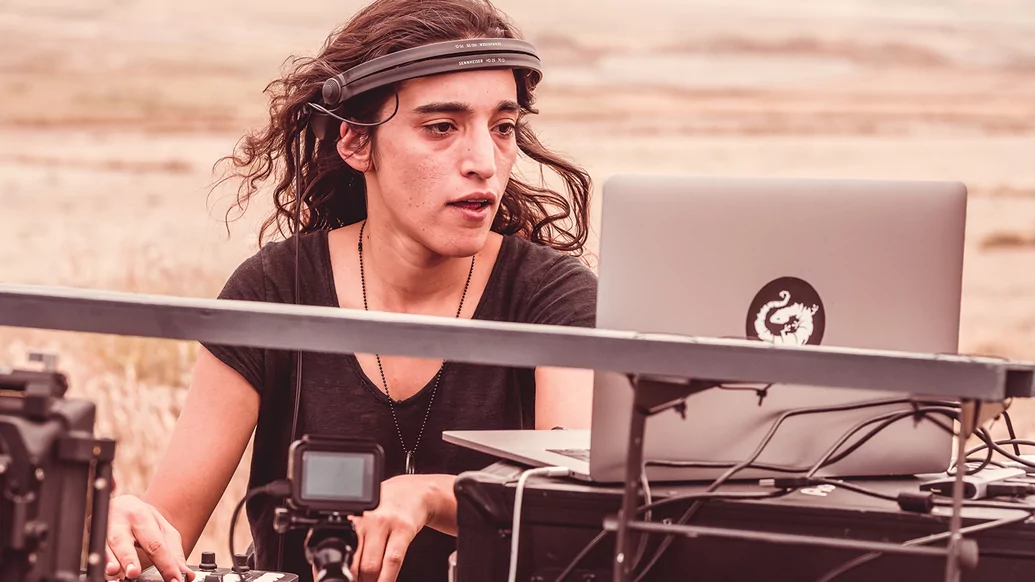

LIFE CHANGING
Growing up, Sama' always wanted to be a footballer. But when she was 17, she got injured, and wasn’t allowed to play football any more. Her dad reminded her of how much she used to enjoy “DJing” at parties when she was 13 — meaning, playing a CD of her favourite chart tracks.
“He told me,” says Sama', “‘didn’t you drive me crazy with DJing?’ He’d have to drop me off at gigs and carry the equipment, because I was a child, and didn’t have a car, obviously.”
Sama' was intrigued by the suggestion. She moved to Beirut, Lebanon, where she fell in love with the capital’s vibrant techno scene. A Satoshi Tomiie gig, she says, was life changing. Afterwards, in 2009, she moved to Jordan to study audio engineering, at her dad’s suggestion. Her course instructor was a huge techno fan, and her classes “were basically me listening to Pete Tong and Nicole Moudaber”.
After graduating, she lived in Egypt for a while, where she worked as a sound designer for TV and film. When she returned home to Palestine, she’d play DJ sets for her friends, but it was nothing official, or even something Sama' particularly considered as a career. Ramallah didn’t really have a dance music scene: people were into rap, or commercial chart music. Sama' would throw parties, but no one came. “I was losing a lot of money,” she laughs, “because I was the only one there.”
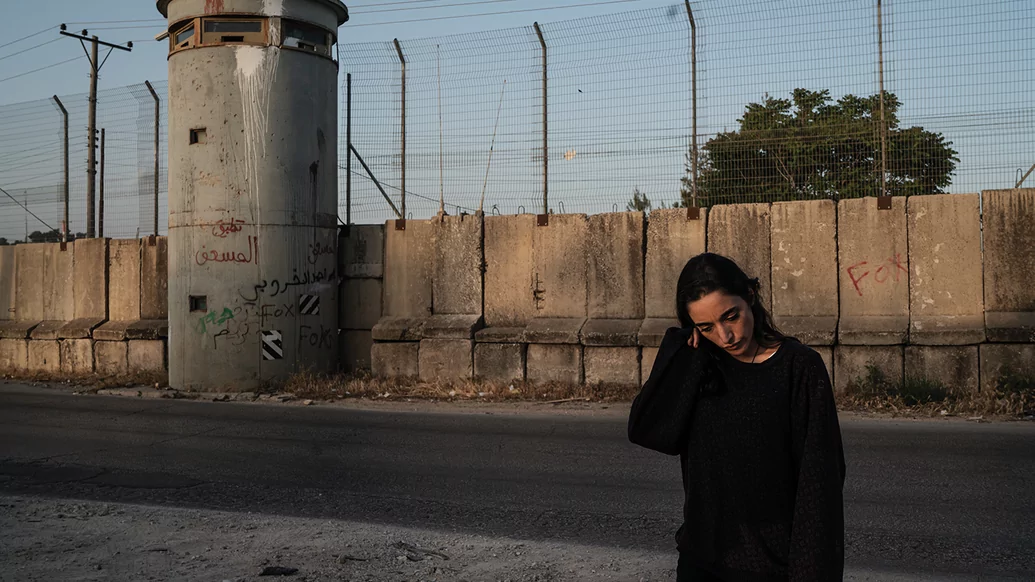
In 2016, Sama' applied to perform at a Palestinian arts festival in France, at the encouragement, once again, of her dad.
“They invited me to play in France,” she says, “and it was the first time I had ever played in front of more than 100 people. I had a panic attack... I’m this idiot playing techno for people. I really honestly thought that I wasn’t any good.” Sama' returned to Egypt and continued working as a sound designer. And then a friend of hers told her about this artistic residency she could apply for, at the International City Of Arts. Her friend helped with her application, and to Sama'’s shock, she was approved. France gave her a three- year residency card. “I went home, packed all my stuff, and moved to France,” she says.
Using this residency card, Sama' was able to travel to Germany for the first time. It was funny, because although Sama' plays a pulsating Berlin sound, she’d never actually been to Berlin.
“I used to buy my music from Beatport,” she explains, “and Beatport back then only had one genre for techno. I would just press that, listen to techno, and buy whatever and play what I liked. I didn’t know there was Berlin techno or Detroit techno, I just knew there was techno.”
Sama' lost and then found herself on the dancefloors of the rugged, north-east German Fusion Festival. “I went with just my backpack,” she reminisces, misty-eyed. “I danced for two days straight, no sitting, no sleeping. I hadn’t seen anything like it in my life. I wasn’t going to miss a single second of it.”
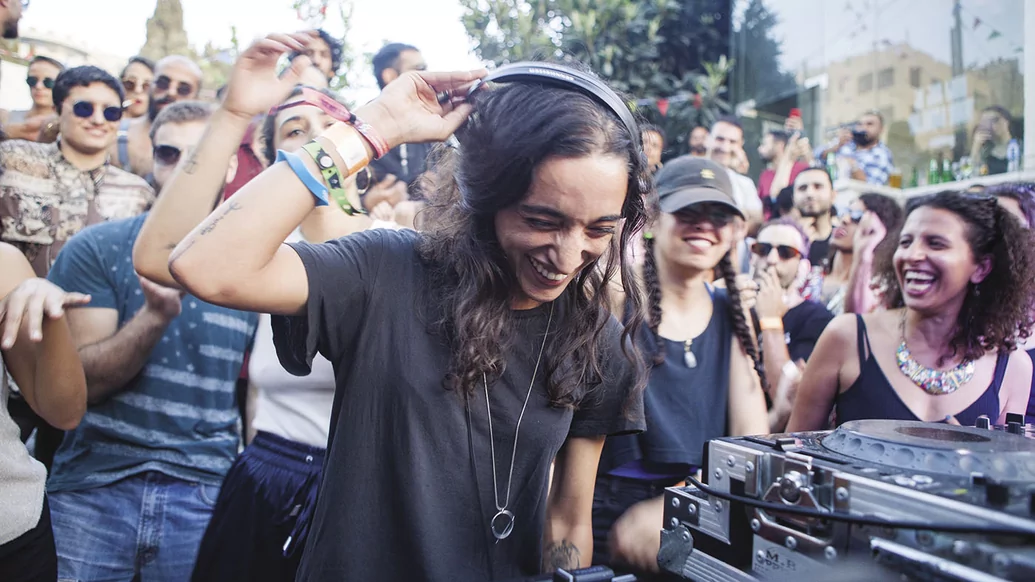

“I could name each person in that [Boiler Room Palestine] crowd. That’s the cool thing about having this much of a closed community. So whenever I was stressed, I’d look at them and calm down. They were boosting me the whole time.”
BOILER ROOM
In France, Sama' slowly started grinding her way into a DJ career. She got a booking deal and scraped a living, gig to gig.
“I’m a DJ in France,” she remembers, “trying to make it, you know, I’m getting paid nothing. And then Boiler Room calls.” At first, Sama' thought she was being pranked. “They called me and I was just laughing my ass off,” she remembers, “saying, ‘Are you actually the Boiler Room? Or are you somebody that’s pretending to be the Boiler Room?’”
When she was convinced that the call was legitimate, Sama' flew home to Ramallah, and began furiously prepping for her set. “I prepared so much,” she says, “like too much. My mum was literally sitting here with my checklist, being like, ‘Have you done this, did you listen to this part?’” Before she played, Sama' was so nervous that she couldn’t breathe. But when she started DJing, she found a sense of flow, bolstered by the fact that she was surrounded, quite literally, by her family and friends. “It was a dream come true,” she says.
“Every time I turned around and looked at the people around me, you know: behind me was my cousin, on the right was my best friend, on the left was another close friend, behind the camera was my brother. I could name each person in that crowd. That’s the cool thing about having this much of a closed community. So whenever I was stressed, I’d look at them and calm down. They were boosting me the whole time.”
Overnight acclaim followed. Every dance music magazine in the world wanted to interview Sama'. But that posed a new problem: imposter syndrome. When booked to play huge festivals, Sama' would compare herself to the person who had just gone on stage before her. “If the person playing before me was doing such a kickass job,” she says, “I’d be terrified to play. Sometimes I really didn’t want to play and I’d just want to keep dancing to the kickass DJ. I’d be like, ‘They’re doing such an amazing job. Why do you want me? They are so much better’.”
As Sama''s career took off, she was faced with a difficult choice. Return to Ramallah, the city she loves, where all her family and friends are? Or continue living in Paris, where she had a residency card, and was able to travel internationally for gigs? Palestinian citizens in the occupied West Bank do not have freedom of movement. They aren’t allowed to use the airports, like Israeli citizens. In effect, they live under a form of apartheid rule.
If Sama' lived in Palestine, she’d be at a huge disadvantage to her European counterparts, who wheel record bags across capitals every weekend with ease. (Or at least they did, in pre-COVID times.) “Travelling from Palestine to anywhere,” Sama' explains, “is a minimum of a-day-and-a-half travel, and a maximum of five days travel, and you never know how long it will take you to get to where you need to go. It’s a minimum of $2,000 to get from Palestine to an Arab country, and that’s not even including Europe and America. Nobody is willing to pay for me to tour that much, and the travel time would be crazy.”
So Sama' picked music. She returned to France, and her career went from strength to strength. She played festivals like Nuits Sonores, IMS and Beyond The Valley. When she could, she went back to Palestine, to see her family. She isn’t bitter about the fact that she had to choose between family and career. That’s just the way things are for Palestinian people.
“I’m so used to it being the reality,” she says, “that I never thought about how I felt about the fact that I have to choose between my family and my career. I don’t feel that great about it. But you’ve got to do what you’ve got to do in life, right? It annoys me now more because my parents are getting older. They’re in their sixties now. I wish I could spend more time with them, but it’s either that I completely stuff my career, or I keep visiting them as much as I can.”
At least the COVID-19 pandemic gave Sama' an opportunity to come home. International touring was firmly off the cards, for the foreseeable future. She returned to Ramallah, and with the occasion of a few live-streamed sets — including Monegros Desert Festival, Spain — she spent most of her time in the studio, working on her productions.
“I know the sound I want to make,” Sama' sighs. “I can’t explain it. It’s so in my head. Every time I work with a synth, I just cannot get to it, you know.” Sama' knows that whatever she releases will have to be perfect. “There’s so much pressure on me when I release a track,” she says, “because I have such a big name as a DJ now. I cannot release a track that’s like an amateur producer. I’m not allowed to make that mistake. I have to do the best I can, and that is a lot of pressure.” Her debut recording as Sama', ‘Reverie’, will be released this July as part of a compilation, ‘Monday Dreamin’’, the first release of the new Circoloco Records.

PRISON
With DJing opportunities thin on the ground, when the opportunity arose to play at the Nabi Musa cultural complex as part of her Beatport Residency, Sama' took it. Although Nabi Musa has religious significance, it has also been used as a hostel and events space. Sama' applied for, and received, all the necessary permits from the Palestinian authorities. The set passed without incident. “I was in the last minute of my set,” she recalls, “like, I had recorded four hours and 59 minutes. I had one minute left, it was the last track, I had my headphones off.” Suddenly, Sama' heard a commotion.
Unbeknownst to her, religious Palestinians had seen footage of her set on social media, and driven to Nabi Musa to break it up. They stormed into the complex, shouting angrily. In the footage, Sama' looks up in confusion and shock.
“They started yelling,” she remembers, “and throwing fireworks and breaking things and going mental at us.” Sama' started apologising immediately, trying to placate the angry men. “I’m like, ‘I didn’t mean to offend you, just listen to me’,” she recalls. Eventually, she managed to calm down the men, and make them realise that she wasn’t doing anything bad. Sama' and her crew packed away their equipment, and left.
“On the drive back,” she says, “we were all laughing about what had just passed.” But that wasn’t to be the end of it — not even close. “Then we got home,” Sama' says, “and it felt like everyone in Palestine wanted to kill us.”
After Sama' came home that night, she realised to her horror that footage of the mob breaking up her set was all over the news. On TV, the Palestinian Prime Minister was talking about how he was going to open an investigation into what happened. Sama'’s dad warned her that the police might come in the morning, and take her in for questioning.
The following morning, 27th December, police knocked on her door. “I was waiting for them,” says Sama'. She went with them to the station for questioning. It was only when she got there that police told her she was being detained. “I’d never seen a prison,” she remembers, “except in the movies.” She’d find herself cracking up in the morning roll calls, because the fact that she was in prison seemed so preposterous. “I just could not process the idea that I was in prison,” Sama' explains.
The Palestinian authorities told Sama' that she was being detained for her own safety. “People want to kill you,” police officers told Sama'. She worried about her parents’ safety, but was assured that officers were around the house, protecting them. Culturally conservative, religious Palestinians were angry at Sama' — and the Palestinian authorities felt that they had to charge Sama' with something, to appease public opinion. “In prison,” she says, “my brain was going to dark places, because nobody was telling me what was happening.”
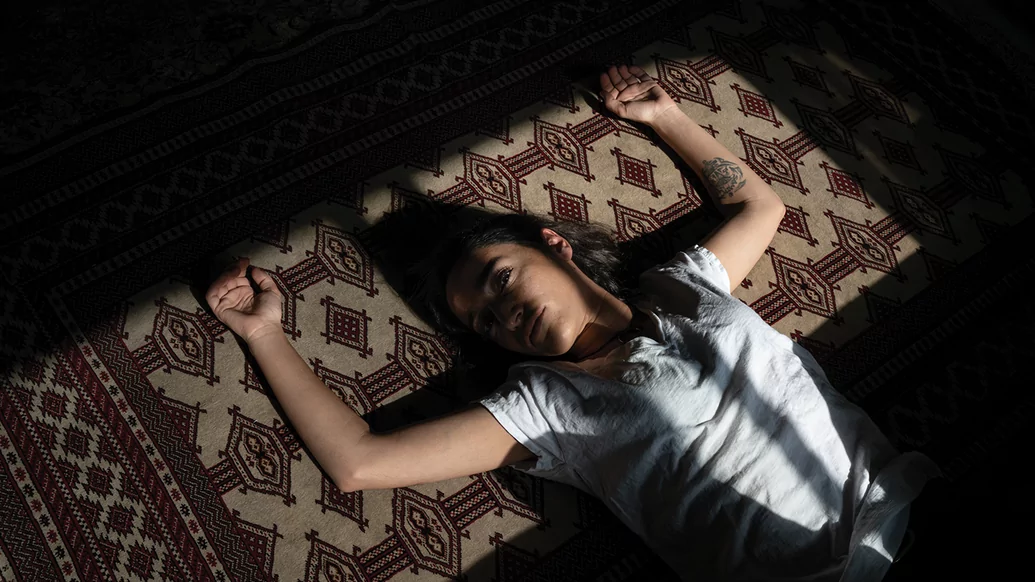

When she was in prison, the dance music community rallied around her. “All the arts organisations here,” Sama' says, “whether it was dance music, theatre, writing, literally all the organisations, signed a petition saying that if you prosecute Sama', you prosecute all of us, because she didn’t do anything wrong. This was a venue that we all could have used, because you told us it was a venue. You can’t just change it from being a venue to a holy site that no one can go to.”
A petition calling for her release was signed by 100,000 people. “Sama' Abdulhadi is being made a scapegoat and held accountable for a crime that did not happen and one that she certainly did not commit... the PA’s detention of Sama' Abdulhadi to ‘tame’ public anger is an official evasion of responsibility, hiding behind Sama' instead of confronting the legal crisis and accepting responsibility,” the petition read. Sama'’s arrest made international headlines, and was covered by Billboard, NME, the BBC and the New York Times.
After eight days, Sama' was released from jail. Prosecutors filed charges against her: for desecrating a holy site and breaking coronavirus rules. Sama' was banned from travelling, and had to check in at the police station every week. For months, she seldom left her house, venturing only occasionally to the cafe where she is Zooming us from today, because it is quiet. “I’m trying to be calm,” she says. “I try to go out in the city and walk amongst people.” She doesn’t take off her facemask in public much, because she’s afraid of being recognised, and assaulted.
The hate has been intense. “I got a lot of death threats,” she says, “I got a lot of people saying, ‘If I see you, I’m going to punish you, I’m going to hit you’. So I have this image in my head that if I walk in the middle of the road, someone is going to come and slap me, spit on me, or something like that.” Nothing has happened yet, but Sama' is still worried.
What hurts the most is that Sama' was turned on by the culture and community that she has spent her entire career championing. Her own people, her fellow Palestinians. “It was an honest mistake,” she says. “Neither I nor the government knew this was going to annoy the people of Palestine.”

AMBITION
For now, Sama' is in limbo. Thankfully, the authorities have revoked her travel ban, meaning that she’ll be able to tour again this summer. But it’s clear that she’s shaken.
“I kind of joke about everything that is serious,” she says. “Even if we talk about politics, and about Israel and Palestine, you’ll find me answering in a jokey sentence, because that’s the way I deal with things. It’s a bad habit, but I can’t help it. The thing is, I really did not expect this from Palestine. When Boiler Room came out, I talked about Palestine so much in my interviews, and it gave us so much exposure. I never expected that Palestinians didn’t know who I was. Now I think, ‘Okay, I need to work a bit harder, to make it okay for techno to be here’.”
Before Sama', no one played techno in Ramallah. Now, “we have a proper scene,” Sama' says. “We have really good DJs, we have a lot of DJs now. It’s very raw here. People do it with all of their hearts, they dance with all of their hearts, and because it’s a very small community, it’s a safe space; we’ve all known each other since we were children, basically.”
When Sama' throws parties with her collective, Union, everyone takes turns at all the responsibilities. “If I’m the DJ now,” she explains, “I will be the bouncer the next hour, then I will be the sound engineer, then I will be the person selling tickets. We all have this understanding that we complete each other to make this space. I love that. It feels like how it was in the ’80s in Detroit or Berlin, and it’s good that I get to experience that and not just hear about the past, because, in Palestine, we are still in ’80s Berlin. It’s beautiful.”


“Palestinians just running their businesses and going on with their daily lives every day is an act of resistance... at the end of the day, we’ve been occupied for over 70 years. We have to eat, we have to drink, we have to sleep, we have to laugh. We have to be human.”
Of course, Palestine isn’t permissive Berlin. Clearly, there’s more work to do in terms of gaining acceptance from the wider Palestinian community, if events of recent months are anything to go by. Parties are routinely broken up by the police. If they make it past midnight, that’s good going. “When I see the police coming,” says Sama' nonchalantly, “I say, ‘Can I just finish this track?’ They’re like, ‘Fine, finish the track’.”
There aren’t clubs, per se: organisers rent out restaurants or bars, and hope they’ll be able to party for as long as possible before the police show up. “You take a venue and do a party,” she explains, “just like you would for a birthday. Techno parties, hip-hop parties, they’re all the same venue, the same thing.” One time, Sama' and her friends managed to convert an underground kitchen into a club — the police didn’t find it for months, it was invite-only, and the parties were loose.
“We turned it into a proper crazy-ass club,” she says. “One night, we got maybe 600 people, it went insane that night.” But the problem is that Ramallah is quiet at night — even the traffic lights get turned off, because there’s no one driving. “The police saw all these random people walking into this door at 2am,” she laughs, “and they thought, ‘Where are all these people going? They’re all walking into nowhere’.” For 12 years now, Sama' says, the police have been shutting down her parties.
Sama' hopes that one day Palestine will be an international party capital, in the same way that Amsterdam, Beirut and Berlin attract dance music lovers from all over the world. “Honestly,” she says, “nobody visits Palestine. It would be really cool if it became a destination for people, because it would create a bit of income for the DJs here, because none of the DJs here are DJs only. You can’t be a DJ here, you cannot live off it.”
But that looks unlikely. “People are afraid of visiting here,” she says, “because of all the images they have in their heads. But obviously we’re alive over here, and we have been alive forever.” Her future ambitions, Sama' says, are “to work on my music and keep being a spokesperson for this place, for the DJs here. I want to do a festival in Palestine.”
Behind Sama', the sky is darkening. Miraculously, as if on cue, the cafe she is in starts playing pounding electronic music. We both laugh at the coincidence. We ask Sama' if Ramallah’s music scene feels like a form of resistance to the Israeli occupation. “It does,” she says, “but actually, Palestinians just running their businesses and going on with their daily lives every day is an act of resistance... at the end of the day, we’ve been occupied for over 70 years. We have to eat, we have to drink, we have to sleep, we have to laugh. We have to be human.” And dance, of course. We have to dance.

